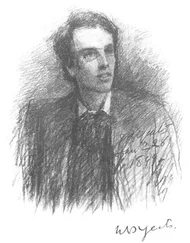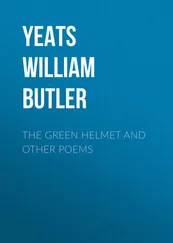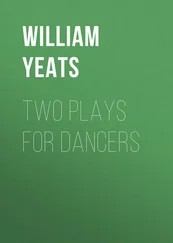William Yeats - Discoveries - A. Volume of Essays
Здесь есть возможность читать онлайн «William Yeats - Discoveries - A. Volume of Essays» — ознакомительный отрывок электронной книги совершенно бесплатно, а после прочтения отрывка купить полную версию. В некоторых случаях можно слушать аудио, скачать через торрент в формате fb2 и присутствует краткое содержание. Жанр: foreign_prose, на английском языке. Описание произведения, (предисловие) а так же отзывы посетителей доступны на портале библиотеки ЛибКат.
- Название:Discoveries: A. Volume of Essays
- Автор:
- Жанр:
- Год:неизвестен
- ISBN:нет данных
- Рейтинг книги:3 / 5. Голосов: 1
-
Избранное:Добавить в избранное
- Отзывы:
-
Ваша оценка:
- 60
- 1
- 2
- 3
- 4
- 5
Discoveries: A. Volume of Essays: краткое содержание, описание и аннотация
Предлагаем к чтению аннотацию, описание, краткое содержание или предисловие (зависит от того, что написал сам автор книги «Discoveries: A. Volume of Essays»). Если вы не нашли необходимую информацию о книге — напишите в комментариях, мы постараемся отыскать её.
Discoveries: A. Volume of Essays — читать онлайн ознакомительный отрывок
Ниже представлен текст книги, разбитый по страницам. Система сохранения места последней прочитанной страницы, позволяет с удобством читать онлайн бесплатно книгу «Discoveries: A. Volume of Essays», без необходимости каждый раз заново искать на чём Вы остановились. Поставьте закладку, и сможете в любой момент перейти на страницу, на которой закончили чтение.
Интервал:
Закладка:
THE MUSICIAN AND THE ORATOR
Walter Pater says music is the type of all the Arts, but somebody else, I forget now who, that oratory is their type. You will side with the one or the other according to the nature of your energy, and I in my present mood am all for the man who, with an average audience before him, uses all means of persuasion – stories, laughter, tears, and but so much music as he can discover on the wings of words. I would even avoid the conversation of the lovers of music, who would draw us into the impersonal land of sound and colour, and would have no one write with a sonata in his memory. We may even speak a little evil of musicians, having admitted that they will see before we do that melodious crown. We may remind them that the housemaid does not respect the piano-tuner as she does the plumber, and of the enmity that they have aroused among all poets. Music is the most impersonal of things and words the most personal, and that is why musicians do not like words. They masticate them for a long time, being afraid they would not be able to digest them, and when the words are so broken and softened and mixed with spittle, that they are not words any longer, they swallow them.
A BANJO PLAYER
A girl has been playing on the banjo. She is pretty and if I didn’t listen to her I could have watched her, and if I didn’t watch her I could have listened. Her voice, the movements of her body, the expression of her face all said the same thing. A player of a different temper and body would have made all different and might have been delightful in some other way. A movement not of music only but of life came to its perfection. I was delighted and I did not know why until I thought ‘that is the way my people, the people I see in the mind’s eye, play music, and I like it because it is all personal, as personal as Villon’s poetry.’ The little instrument is quite light and the player can move freely and express a joy that is not of the fingers and the mind only but of the whole being; and all the while her movements call up into the mind, so erect and natural she is, whatever is most beautiful in her daily life. Nearly all the old instruments were like that, even the organ was once a little instrument and when it grew big our wise forefathers gave it to God in the cathedrals where it befits Him to be everything. But if you sit at the piano it is the piano, the mechanism, that is the important thing, and nothing of you means anything but your fingers and your intellect.
THE LOOKING-GLASS
I have just been talking to a girl with a shrill monotonous voice and an abrupt way of moving. She is fresh from school where they have taught her history and geography ‘whereby a soul can be discerned,’ but what is the value of an education, or even in the long run of a science, that does not begin with the personality, the habitual self, and illustrate all by that? Somebody should have taught her to speak for the most part on whatever note of her voice is most musical, and soften those harsh notes by speaking, not singing, to some stringed instrument, taking note after note and, as it were, caressing her words a little as if she loved the sound of them, and have taught her after this some beautiful pantomimic dance, till it had grown a habit to live for eye and ear. A wise theatre might make a training in strong and beautiful life the fashion, teaching before all else the heroic discipline of the looking-glass, for is not beauty, even as lasting love, one of the most difficult of the arts?
Конец ознакомительного фрагмента.
Текст предоставлен ООО «ЛитРес».
Прочитайте эту книгу целиком, купив полную легальную версию на ЛитРес.
Безопасно оплатить книгу можно банковской картой Visa, MasterCard, Maestro, со счета мобильного телефона, с платежного терминала, в салоне МТС или Связной, через PayPal, WebMoney, Яндекс.Деньги, QIWI Кошелек, бонусными картами или другим удобным Вам способом.
Интервал:
Закладка:
Похожие книги на «Discoveries: A. Volume of Essays»
Представляем Вашему вниманию похожие книги на «Discoveries: A. Volume of Essays» списком для выбора. Мы отобрали схожую по названию и смыслу литературу в надежде предоставить читателям больше вариантов отыскать новые, интересные, ещё непрочитанные произведения.
Обсуждение, отзывы о книге «Discoveries: A. Volume of Essays» и просто собственные мнения читателей. Оставьте ваши комментарии, напишите, что Вы думаете о произведении, его смысле или главных героях. Укажите что конкретно понравилось, а что нет, и почему Вы так считаете.












